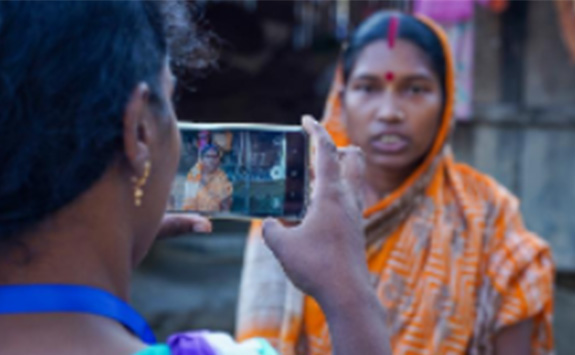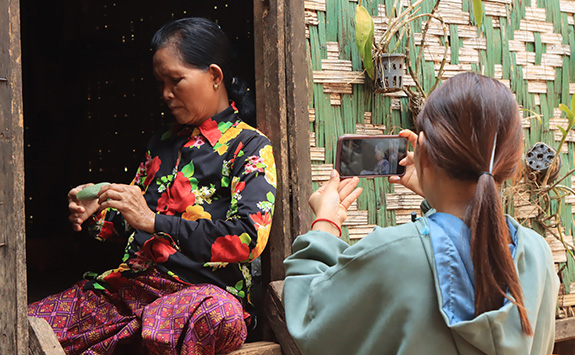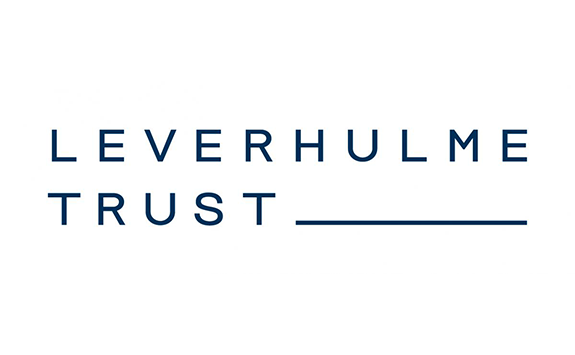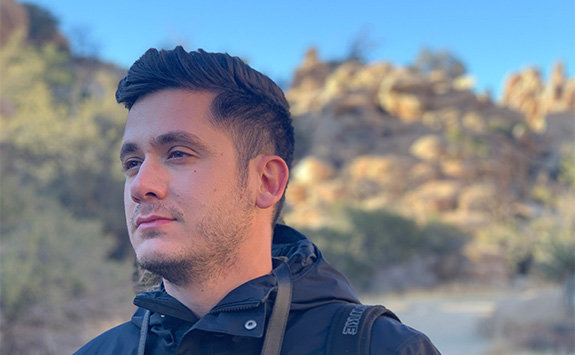Dr Angelos Theocharis, Leverhulme Early Career Research Fellow
Research updates, insights and future plans
What will your research seek to do?
I look at the impact of environmental degradation and the climate crisis on Indigenous cultural heritage through short films produced by communities in Vietnam and Cambodia. These videos emerge from a collaborative smartphone filmmaking process, where participants freely choose their topics and develop, film, and edit their stories with the support of workshop facilitators. I believe it is essential to emancipate the creative potential of those whose voices are often unheard and whose lives are intrinsically disordered by the effects of climate change.
Building on prior research with delta communities in Bangladesh and Vietnam, I plan to expand this unique Indigenous video collection with counterhegemonic narratives on environmental change.
This collection not only raises awareness of endangered cultures, but also contributes to a methodology and conceptual framework for studying Indigenous heritage.
How have you found your first year?
I started the fellowship by building a database for the Indigenous digital film archive from my fieldwork in Bangladesh and Vietnam, which laid the groundwork for my Leverhulme project. I then conducted a fieldtrip to Ratanakiri, Cambodia, where I led a 5-day participatory smartphone filmmaking workshop with Tampuan people, resulting in eight short films on environmental change and community strategies for heritage preservation.
I co-organized the 'Indigenous Heritage and Climate Activism' seminar series, which brought together ten Indigenous scholars, artists, and activists from around the world to discuss environmental justice, climate policy, and community art.
I also completed two book projects: my first monograph Diaspora Reads: Community, Identity, and Russian Literaturocentrism (Cambridge: Legenda, 2025) and the co-edited volume, River Delta Futures: Endangered Communities in Audiovisual Media (London: Bloomsbury Academic, 2025).

Image courtesy of the Dhaka International Mobile Film Festival
I believe it is essential to emancipate the creative potential of those whose voices are often unheard and whose lives are intrinsically disordered by the effects of climate change.
What have you got planned for the year ahead?
This year, I'll be heading back to Cambodia to organise another filmmaking workshop, this time with an Indigenous community in Mondulkiri province.
By the end of this project phase, my collection will include 48 short films from five Indigenous communities across three countries.
I’m also diving into my writing, exploring how Indigenous people approach changes in their heritage —whether as an irreversible loss, a damage that can be overcome, or a reality that must be actively resisted.
Finally, the "Indigenous Heritage and Climate Activism" seminar series will continue with new sessions in Spring 2025, featuring speakers from Africa, South America, and Russia.

Image courtesy of Kdei Karuna
Now that you have started your Fellowship, what advice would you give to someone starting something similar?
My research is field and practice-based, and I would advise anyone pursuing a similar path to invest in collaborations. These collaborations must be equitable, respectful, and reciprocal. Community-focused work can be transformative if you are an attentive listener.
It’s also unpredictable, so you need to be prepared for all possible scenarios.
The Leverhulme Trust
Dr Angelos Theocharis is supported by the Leverhulme Trust as a Leverhulme Early Career Fellow, allowing him to carry out the work outlined above.
Since its foundation in 1925, the Leverhulme Trust has provided grants and scholarships for research and education, funding research projects, fellowships, studentships, bursaries and prizes; it operates across all the academic disciplines, the intention being to support talented individuals as they realise their personal vision in research and professional training. Today, it is one of the largest all-subject providers of research funding in the UK, distributing approximately £100 million a year. For more information about the Trust, please visit www.leverhulme.ac.uk and follow the Trust on Twitter/X @LeverhulmeTrust

